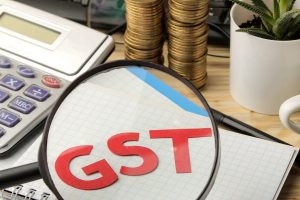
Police on Thursday busted a gang believed to be behind a Rs 10,000-crore GST fraud, which it allegedly orchestrated by registering more than 2,000 companies from stolen or fake identities, and then using these firms to raise e-way bills and avail input tax credit (ITC) from the government.
The operation, police said on Thursday, had been running for the past five years, and the gang had created around 2,600 bogus firms. It allegedly stole PAN card details of 6.3 lakh people.
Eight suspects were arrested from Delhi’s Madhu Vihar on Thursday and sent to judicial custody. Four of them – Rajeev (38), Vishal (20), Deepak Murjani (48) and his wife Vinita (45) – are residents of Delhi. The others, Avni (25) is from Noida, Akash Saini (21) is from Sahibabad, Atul Sengar (23) from Hathras (UP) and Yasin Sheikh (38) from Mumbai.
E-way bills are GST documents that must be carried while transporting any goods or services. These allow the government to keep track of the movement of goods and services offered.
“Fake ITC allows a company to shrug off actual tax liability, affecting the government’s revenue collection, just like a fake currency note. Fake e-way bills also make the company look genuine,” a state GST department official explained.
The scam came to light after the editor of an online news portal filed a complaint at the Sector 20 police station on May 10, alleging that his PAN card details had been used to create two companies – one in Ludhiana (Punjab) and the other in Solapur (Maharashtra).
“An FIR was registered for forgery and cheating. We have started an investigation into the matter,” Noida police commissioner Laxmi Singh said.
“The gang has been active for the past five years. Police recovered details of 2,660 bogus companies, which were used to generate e-way bills of Rs 2-3 crore each every month,” Singh added.
Essentially, the gang would buy personal data – names of individuals, names of their family members, birth dates and PAN card details – from employees of companies that have large user databases such as mobile service providers, according to DCP Harish Chander.
“The gang would use this data to make fake rent agreements and electricity bill forms after tampering bill formats found online. Then they would get fake Aadhaar cards made by paying fraudsters Rs 1,000-1,500 for each,” the DCP said.
These documents were used to create companies and register them with the GST department.
After this, fake e-way bills would be created to show that the companies were transporting goods and services. Along with this, the companies would be used to avail input tax credit, said ACP Rajneesh Verma.
Many of these companies were “sold” to clients as well, each for Rs 80,000 to Rs 90,000, according to the cops.
“Those who bought the fake companies would use the firms to avail ITC, and/or to convert black money into white. They would also use e-way bills to their advantage,” Verma said.
Cops are now tracing the whereabouts of another seven people, who allegedly bought the companies from the gang. The GST department and other relevant agencies have been alerted about the fraud for further investigation, said additional DCP Shakti Avasthy.
The state GST official cited above said the fraud is estimated to be worth Rs 10,000 crore.
“Evidence and documents collected have been analysed. We can confirm that the accused have defrauded the GST department of over Rs 10,000 crore as per our estimates,” he said.
Two FIRs have been registered against the eight accused under sections 420 (cheating), 467 (forgery), 468 (forgery for cheating), 471 (using as genuine a forged document) and 120B (criminal conspiracy) of the IPC.
Across the country, offences related to tax evasion, fake ITC and fake invoices for non-existent goods and services have been on the rise. Data by the Union finance ministry shows that the number of GST-related frauds went up from 12,574 in 2021-22 to 13,492 in 2022-23 (till February).
“There is also a rise in cases in which GST is evaded through the creation of bogus firms, in which frauds worth crores of rupees are carried out by obtaining GST registration based on fake addresses and documents. Further, GST registrations obtained using fudged Aadhaar data have been found in all major states,” the GST official added.
In Noida as well, cases of GST evasion have more than doubled over three years. In 2020-21 fiscal year, the district recorded 66 cases of tax evasion, according to UP tax department. In 2021-22, this went up to 91 cases, and in FY 2022-23, another 134 cases were recorded.
In total, fines of Rs 75.82 crore were collected, the data shows.
Source: The Times of India
https://timesofindia.indiatimes.com/city/noida/fake-companies-and-eway-bills-to-spin-rs-10000-crore-gst-fraud/articleshow/100690636.cms


